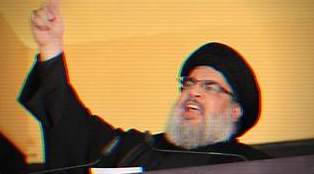Israel’s killing of Hezbollah leader has sparked mixed reactions across the region.
“The master of the resistance, the righteous servant, has passed away,” read Hezbollah’s official announcement, confirming the assassination of its leader, Hassan Nasrallah, killed by an Israeli airstrike on 27 September. Though Nasrallah’s supporters mourn his loss and regional analysts prepare for possible retaliation, parts of the Middle East are celebrating his demise due to his controversial legacy tied to terror and betrayal.
Within Lebanon, Nasrallah’s Hezbollah has often generated division, having functioned almost as an autonomous entity with its own militia, overshadowing the national government. His deep ties to Iran rather than Lebanon have made Hezbollah an unofficial paramilitary arm of Iran’s Islamic Revolutionary Guard Corps, creating an uneasy relationship within Lebanon’s political landscape.
The reactions across the Middle East reveal a complex picture. For Nasrallah’s supporters, he was a leader who stood against Western and Israeli influence in the region. Yet, in other areas, his death marks a potential end to years of tension surrounding Hezbollah’s extensive reach and militaristic control, which extended beyond Lebanon’s borders into regional conflicts.
Nasrallah’s assassination brings to the forefront Hezbollah’s role and the intricate relations with Iran, as well as the many incidents of violence attributed to Hezbollah under his command. For decades, Nasrallah had been a symbol of resistance to some, and a destabilizing force to others, illustrating the layered sentiments regarding his legacy.
Observers note that the implications of his death may reverberate throughout the region. While some anticipate a symbolic shift or potential for moderated Iranian influence, others warn that Hezbollah’s network of regional ties could seek retribution. The impact of Nasrallah’s absence may signal either a shift toward new leaders or provoke further confrontations within an already tense geopolitical climate.
Amid these reactions, Iran’s intentions regarding Hezbollah’s future and its place within the broader context of Middle Eastern power dynamics remain uncertain, with Nasrallah’s death potentially influencing future alignments and the ongoing balance of power.

